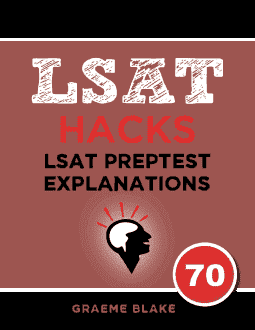QUESTION TEXT: People may praise the talent of a painter capable of…
QUESTION TYPE: Method of Reasoning
CONCLUSION: People appreciate paintings for more than being exact replicas of scenes.
REASONING: If people only cared about replicating scenes, then photography would have completely eliminated paintings.
ANALYSIS: The first few lines are just context. I've summarized the reasoning above.
This is a good argument. We all know that a camera can replicate a scene more accurately and more quickly than a painter can.
Yet people still paint, and people still enjoy new paintings. So there must be some other things that people like about paintings.
A couple of the answers mention that the argument is a defense of people's taste. It isn't. The argument may perhaps defend abstract impressionism, but the argument isn't defending the fact that people like more than realism in paintings. That's just a fact that the argument wants to prove.
___________
- The stimulus doesn't mention “what most people appreciate”. This couldn't possibly be the right answer. Also, the conclusion is not about an abstract principle. The conclusion is about what people appreciate in paintings.
- What aesthetic principle? The stimulus doesn't mention any. And the argument isn't defending people's tastes. It's merely describing them.
- The stimulus is talking about the present, not about history. The stimulus uses a historical fact, but only to make a claim about what's true in the present.
- CORRECT. The historical fact is that photography hasn't displaced painting. The claim is that people like paintings for more than their ability to reproduce scenes.
- The argument doesn't say that people are right to like paintings for more than their realism. This argument is not a defense of people's tastes.


I’m confused on the distinction you made between C and D. You start off by dismissing C because you said “The stimulus is talking about the present, not about history” but then you go and pick D which start off by the same sentence regarding history. Can you further elaborate and the difference between C and D?
Thanks in advance
Thanks, I just edited it. Is it clearer now?
C implies the stimulus is making an argument about history. But the argument merely uses history to justify a claim about the present.